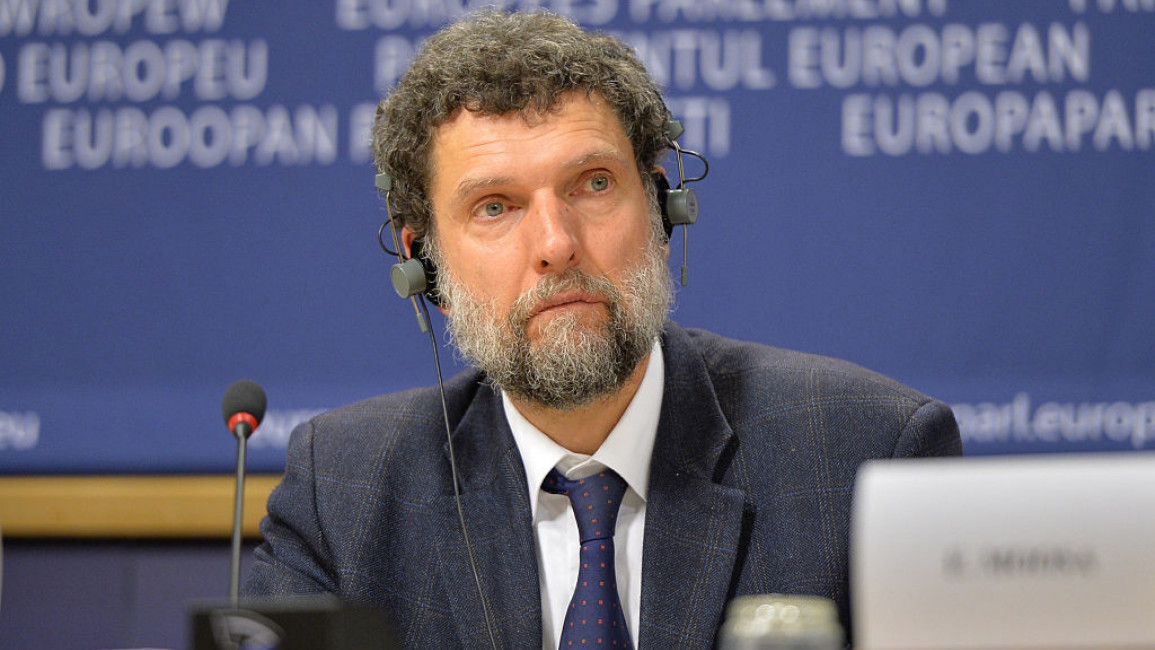Turkish civil society leader Osman Kavala has detention extended, compares treatment to Nazi stage trial
Turkish civil society leader Osman Kavala on Friday compared his treatment to a Nazi stage trial as a court extended his detention without a conviction despite global appeals for his release.
Kavala has been facing a myriad of shifting charges and has remained in pre-trial detention in a high-security prison on the outskirts of Istanbul for nearly four years.
The Parisian-born philanthropist's case has turned into an emblem of the political repressions that followed a failed 2016 coup attempt against President Recep Tayyip Erdogan.
He will be jailed for life without the possibility of parole if found guilty of alleged offences that include spying and attempts to overturn the constitutional order.
"Osman Kavala has been behind bars for nearly 1,300 days, even as the European Court of Human Rights demanded his release a year and a half ago," said a joint Franco-German statement issued by the French embassy ahead of Friday's hearing.
"Turkey's treatment of Osman Kavala... [is] not worthy of a country governed by the rule of law or a long-standing member of the Council of Europe."
The two countries' council generals were among several Western diplomats attending at the criminal court hearing in Istanbul.
The court rejected an appeal to release Kavala by a majority decision and scheduled the next hearing for August 6.
'Like a baton'
Friday's hearing put the 63-year-old on trial again on charges of which he and others had already been acquitted in February 2020.
The case stemmed from 2013 protests that began in defence of a small park in Istanbul before snowballing into a national protest movement that was eventually harshly dispersed by the police.
Kavala was acquitted of financing and organising those protests.
But he was rearrested before he could return home and later charged with new offences linked to the failed 2016 coup attempt.
A court then overturned his acquittal in the case linked to the 2013 protests and merged the two trials into one.
"The charges against me keep changing," Kavala told the court in a statement released by his support team.
It is "like a baton handed over in a relay race, with various judges and courts carrying over my arrest, refraining from dropping it to the ground."
He added that the espionage charge in particular "resembles the concept of 'Landesverrat' (treason) which was also utilised for charges of espionage in Germany during the Nazi period".
Kavala, a businessman and philanthropist who has been imprisoned for more than three years without a conviction, is being tried on charges related to a 2016 coup attempt.https://t.co/7MBPjSYOK2
— The New Arab (@The_NewArab) February 11, 2021
A few dozen Kavala supporters rallied outside the court room under the rain as the first hearing in his case since February got underway.
"Kavala, who is still in prison as a political prisoner despite there being no concrete evidence against him, should be released," said protester Akif Burak Atlar.



